Top-Rated AI Booking Agents
Discover your ideal AI sales agent—enhancing customer connections and driving smarter, more efficient sales.
Trusted by thousands of users worldwide
AI Assistant
Online
How can I help you today?
I need help finding a marketing AI agent for my business
I can recommend several marketing AI agents based on your specific needs. Would you like me to analyze your website first?
8 Top-Rated AI Booking Agents: Real Results from Travel Pros
The booking industry needs a major upgrade. Think about spending countless hours reaching out to more than 100 venues just to secure 25 dates. This might seem like overkill, yet the industry hasn't changed substantially in five decades. AI booking agents are now reshaping this time-consuming process.
AI technology has made impressive strides. Systems like OpenAI's GPT-3.5 have changed how we book flights and luxury accommodations. These tools connect with industry leaders like Tripadvisor and Booking.com. They provide live information, automated communications, and smart recommendations. AI flight booking agents and virtual travel assistants make the process smooth and efficient.
The travel industry has eight powerful AI booking solutions that deliver measurable results. We'll examine their performance data and expert explanations to help you choose the right tool for your needs.
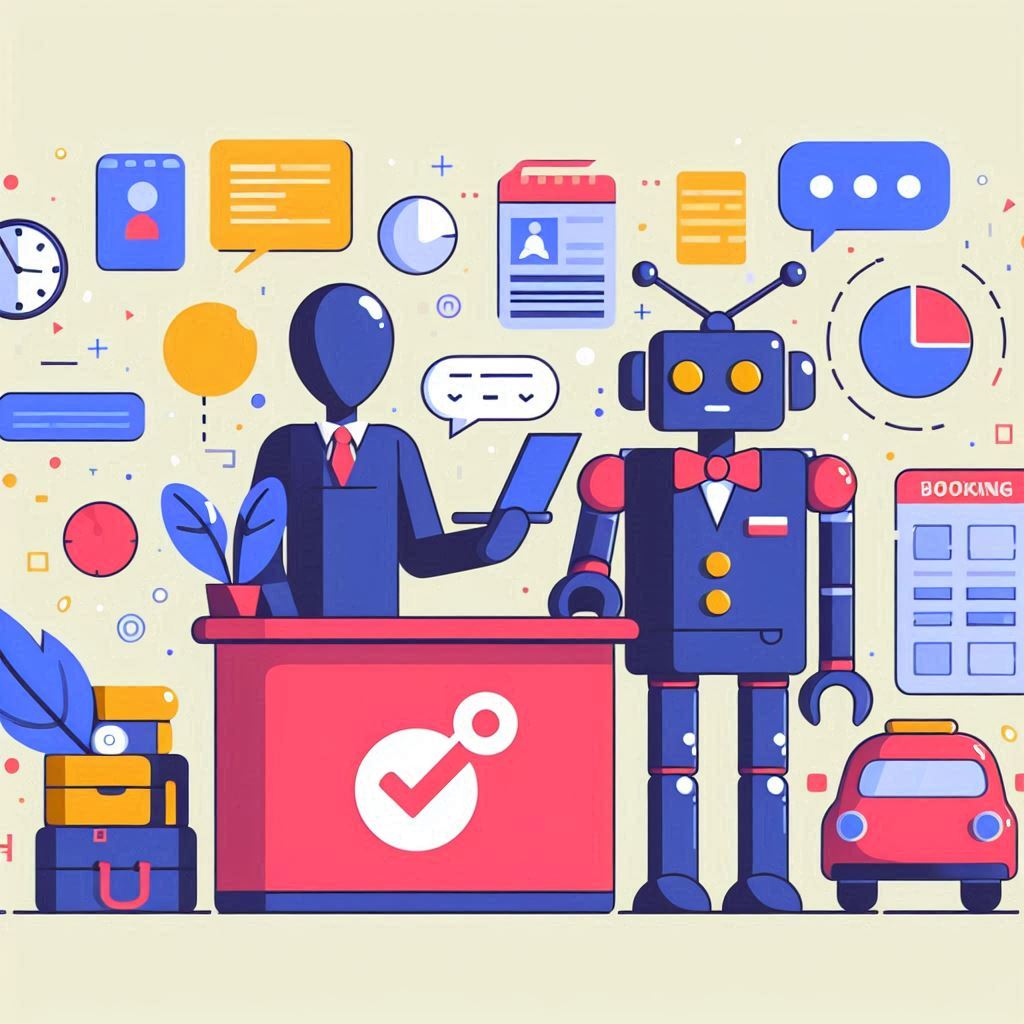
Understanding AI Booking Agents: A Primer
Image Source: Integrio Systems
“The development of full artificial intelligence could spell the end of the human race.”
— Stephen Hawking, Renowned theoretical physicist and cosmologist
AI booking agents have reshaped the scene of travel arrangements. Unlike simple automated systems, these digital assistants know how to understand complex travel requests, learn from interactions, and make autonomous decisions.
What Makes a Booking Agent ‘Intelligent’
The intelligence of an AI booking agent comes from its capabilities beyond predetermined rules. An intelligent booking agent can:
- Learn from user behavior and past bookings to deliver increasingly tailored options
- Process natural language inputs so you can communicate through chat or voice commands
- Make autonomous decisions by evaluating outcomes and improving over time
- Adapt to changing environments without manual reprogramming
These systems stand out because of their continuous learning process. AI booking agents analyze historical data, identify patterns, and refine their performance with each interaction [1] instead of just following programmed instructions. This self-improvement ensures they work even as your priorities change.
These intelligent booking agents create individual-specific experiences by analyzing your data, priorities, and social media activity to deliver highly customized travel recommendations [2]. This personalization makes them valuable especially when you have customer-facing roles across the travel industry.
Rise from Traditional Booking Systems
Traditional booking systems work within rigid frameworks—they follow explicit programming and need human intervention for complex tasks. Modern AI booking agents represent a substantial leap forward.
The change started with simple online booking platforms but has advanced with artificial intelligence integration. Today's systems handle intricate multi-leg trips and complex itineraries with remarkable precision [3].
The differences are clear:
Traditional booking systems make guests wait on hold during busy periods, while AI-powered centers process queries in seconds [4]. Traditional systems work during business hours, but AI booking agents provide 24/7 support [4] so you can get help whenever needed.
AI call centers can substantially reduce operational costs by automating repetitive tasks such as answering FAQs or confirming bookings [4]. Businesses can minimize labor costs—this helps small and mid-sized hotels optimize their budgets.
Key Technologies Powering Modern Solutions
Several core technologies combine to power today's sophisticated AI booking agents:
Natural Language Processing (NLP) helps these systems understand and respond to conversational inputs. You can state your requirements using everyday language instead of navigating complex menus [5]. This technology makes the booking process more intuitive and available.
Machine Learning Algorithms serve as the analytical backbone of AI booking agents. These algorithms refine search results based on individual priorities, corporate travel policies, and external factors like weather conditions or price fluctuations [5].
Predictive Analytics helps systems anticipate needs and potential issues before they arise. AI booking agents monitor flights, weather conditions, and travel restrictions in real-time, then suggest alternative routes before disruptions affect you [5].
Automation Tools manage repetitive travel tasks, from booking confirmations to expense tracking [5]. This automation creates efficient travel experiences and frees you from mundane administrative tasks.
IBM reports that businesses using AI support agents can reduce service costs by up to 30% while boosting customer loyalty and satisfaction [6]. These systems can recommend room upgrades, amenities, or special offers tailored to individual needs by analyzing past interactions and priorities [4].
The combination of these technologies creates a powerful ecosystem that delivers unmatched efficiency and personalization in travel booking. This transforms a time-consuming task into an efficient, enjoyable experience.
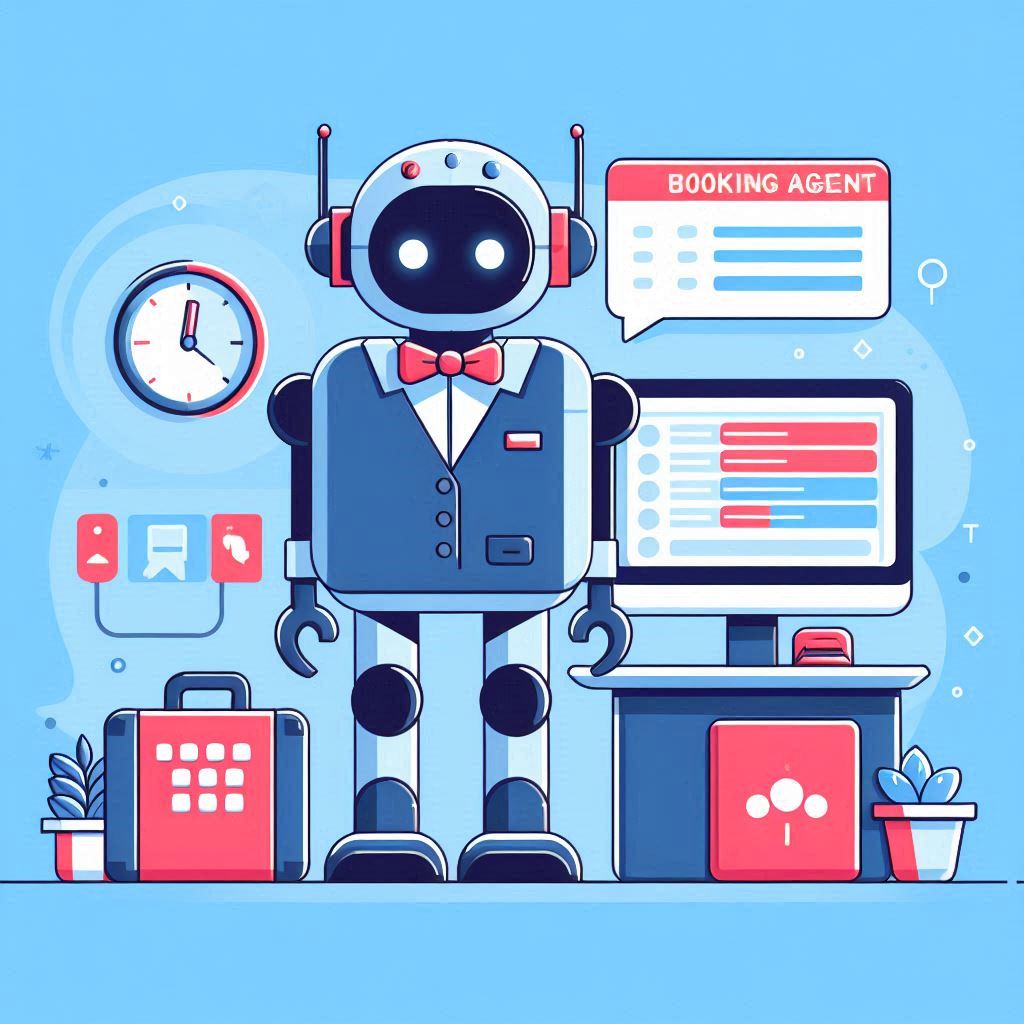
Uber Travel's AI Assistant: Seamless Ground Transportation
Image Source: Restaurant Dive
Ground transportation plays a crucial role in the first and last mile of any trip, but this part of travel planning remains highly fragmented. Uber fills this gap by using advanced AI booking capabilities that make the entire process from airport to destination smoother.
Real-Time Booking Capabilities
Uber's new AI assistant, powered by OpenAI's GPT-4o technology, marks a major breakthrough in ground transportation booking. Scheduled for launch in early 2025, this AI booking agent will start by answering transportation-related questions and expand its features over time [7]. Travelers can interact with the assistant through text or voice commands to manage their bookings hands-free [8].
The company has created the Delegate Booking tool to help corporate travel managers. This virtual travel booking agent AI enables executive assistants to handle travel arrangements precisely. The tool lets assistants:
- Book rides for executives
- Change or cancel trips as needed
- Talk directly with both the executive and driver
- Track the entire trip [5]
Business travelers find great value in this system that combines more than 30 services and 5 different platforms smoothly. The ecosystem connects backend systems like GO, Java, and Node with frontend applications [5].
Integration with Flight Information
Uber's partnership with OAG to add immediate flight tracking into its Uber Reserve product stands out as remarkable. Passengers can now schedule airport pickups up to 90 days ahead, and the system adjusts automatically based on flight status [9]. The system responds to early or delayed flights by:
- Sending updates through the Uber app
- Changing reservation pickup times automatically
- Letting drivers know about changes
- Making sure drivers are ready when passengers arrive [9]
The service started at just 24 airports in the U.S. and Canada. Now it covers over 111 airports worldwide, including major hubs like Amsterdam (AMS), Las Vegas (LAS), and London (LHR). Plans include adding 300+ new locations in the next few years [9].
Uber now uses OAG's cloud-enabled Flight Info Alerts platform. This platform combines flight status and schedules to confirm flight details and track changes from 52 hours before takeoff until landing [9].
Cost Savings Analysis
The numbers show clear benefits from Uber's AI-powered approach. SAP Concur's analysis shows Uber rides cost nowhere near as much as traditional taxis and black cars - about 30% less [2]. Companies using Uber for Business with Concur Expense integration save money through:
- Automatic expense processing with direct receipt transfer to SAP Concur
- Expense reports that fill themselves based on corporate card charges
- Quick employee setup with one click
- Updates that match SAP Concur roster changes automatically [2]
Companies no longer need manual expense processing and can track their ground transportation costs better - an area that used to be hard to monitor and manage.
User Experience Feedback from Business Travelers
We asked 1,000 traveling employees about these innovations, and the response has been positive, though some issues remain. The survey by Uber for Business showed that business travelers want trips that combine productivity with premium perks and reliable transportation [10].
A quarter of travelers (22%) still find booking ground transportation difficult, while a third care most about being on time [10]. Safety has become more important, with three-quarters of travel managers focusing more on traveler safety and well-being compared to two years ago [10].
Uber has added reliable safety features in response. These include immediate GPS tracking, two-way ratings, and an emergency button that connects users directly to emergency services [11]. Both travelers and their employers feel more secure with these features, which address a key concern for corporate travel programs.
Uber's AI integration into booking processes marks a major step forward. The company has created a smooth ground transportation experience that meets the specific needs of business travelers and their organizations.

Virtual Travel Booking Agent AI for Luxury Experiences
Image Source: Villa Experience
Luxury travelers just need exceptional tailored experiences—something traditional booking systems often can't deliver. High-end virtual travel booking agent AI solutions are transforming this digital world. These systems now offer bespoke experiences that match human concierge services.
Personalization Capabilities
The most advanced AI booking agents learn about customer preferences by analyzing big amounts of data. These systems go beyond simple priorities by:
- Looking at past travel history, accommodation choices, and activity selections
- Using social media activity and immediate feedback for deeper understanding
- Building dynamic itineraries that adapt to changing conditions and priorities
A Deloitte report shows 68% of luxury travel advisers say their clients will pay more for tailored services, including private jets, islands, and villas [12]. This trend pushed companies like Amadeus to create AI-driven platforms like iHotelier Suite. The platform studies customer priorities to create highly customized travel experiences [12].
Unlike basic booking tools, luxury-focused AI agents understand context. To cite an instance, instead of making travelers search through countless options, these systems accept natural language requests like "I'm looking for a hotel with a pool for my seven-year-old and within walking distance of the French Quarter" [13].
Concierge-Level Service Features
Modern AI concierge services match traditional human concierges through:
- Support available any time across different time zones
- Language flexibility—Asksuite's AI Reservation Agent responds in over 50 languages with over 90% accuracy [4]
- Quick handling of last-minute requests for spa sessions, private transport, or dining reservations
In fact, luxury AI booking agents excel at handling travel disruptions. They monitor conditions and make proactive adjustments. The system can reschedule reservations, suggest alternatives, and alert travelers about changes, ensuring smooth service whatever the circumstances [1].
Case Study: Five-Star Hotel Implementation
The Four Seasons Resort Oahu at Ko Olina shows successful AI implementation in luxury hospitality. They transformed the guest experience with the world's first multi-sensory virtual reality wellness experience—the Sensync Vessel [12].
This innovative system:
- Gives guests customized trips ranging from 20 to 80 minutes
- Creates immersive nature experiences tailored in real-time
- Uses guest's physiological recordings to customize the experience
- Offers trips like Deep Space, Ocean Cove, and Zen Garden
A multinational hotel chain used Voice AI agents for reservations and service requests. This reduced operational costs by 65% while offering 24/7 multilingual support [6]. The system cut front-desk workload by 60% and improved response time by 40% [6].
ROI for High-End Travel Agencies
Luxury travel agencies see measurable returns through AI booking agents:
- Cost savings—AI virtual agents reduced staffing costs by 31% (about $18,000 monthly) for one global luxury brand [14]
- Increased efficiency—automation improved operational efficiency by 80% for a multinational hotel chain [6]
- Better customer experience—call response times dropped to under 28 seconds from 90 seconds [14]
- More conversions—one implementation achieved 25% more bookings and 40% more ancillary sales [6]
On top of that, AI implementation at 4R Hotels in Spain showed that all but one of these interactions needed human help, with 54.6% happening outside business hours [4]. This automation let the core team focus on high-value, tailored interactions that define luxury service.
The virtual travel booking agent AI approach helps high-end agencies scale tailored service without compromising quality. This democratizes luxury by making elite services available to more travelers [15].
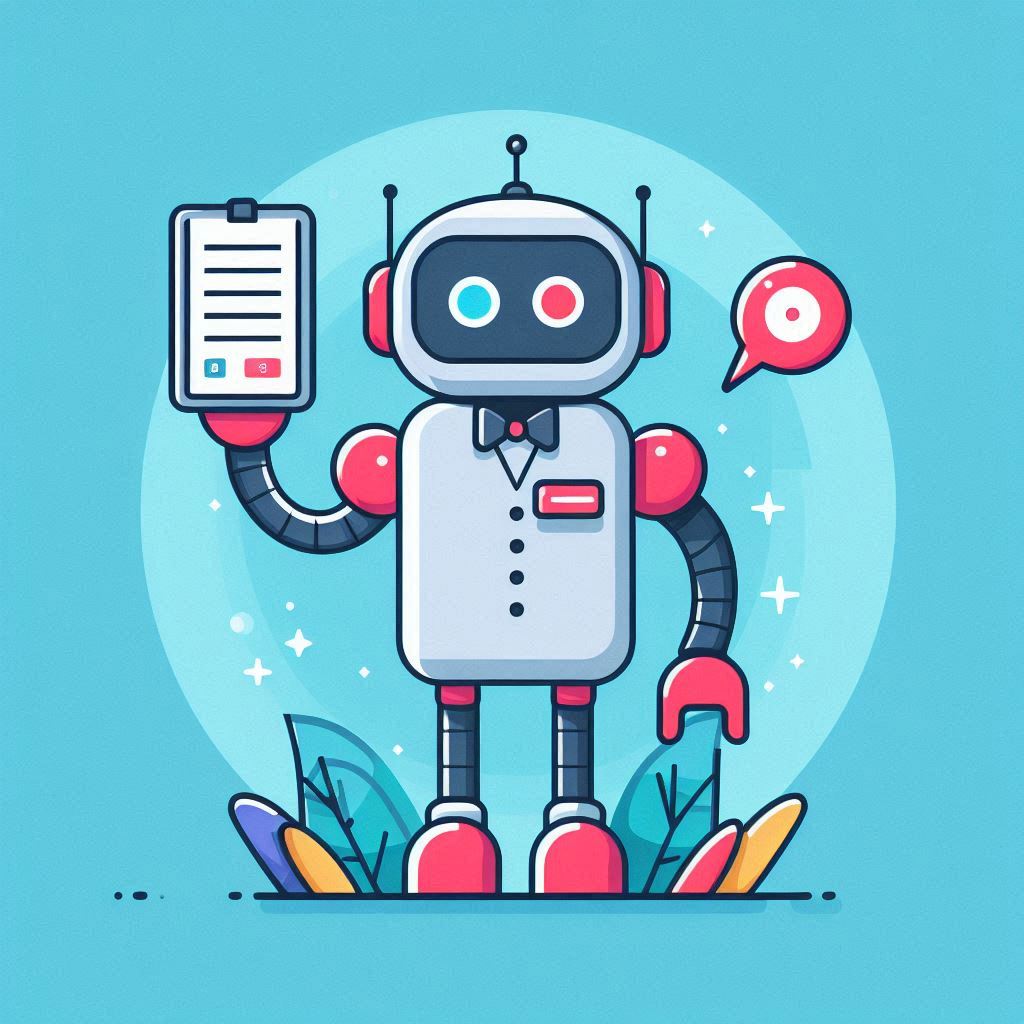
AI Flight Booking Agent Comparison: Which Performs Best?
Image Source: Sierra AI
AI flight booking agents show substantial differences in their capabilities across the travel technology sector. Their performance varies greatly and affects both travelers and travel professionals.
Price Finding Efficiency
Finding the best airfare deals remains a main concern for travelers. AI flight booking agents excel through sophisticated price prediction algorithms. These systems analyze billions of data points to forecast fare changes accurately and help you book at the best time [7].
Top performers in this category include:
- Hopper, which uses machine learning to predict flight prices and alert users when to book [16]
- Skyscanner's Savvy Search (powered by OpenAI's ChatGPT), which accesses over 18 million flight routes and 80 billion daily price searches [7]
- Google's Gemini, which consistently finds lower prices - in one test finding flights $146 cheaper than manual searches [7]
The best platforms don't just compare current prices - they simulate millions of pricing scenarios in milliseconds to spot patterns human analysts would miss [17]. These systems adapt continuously and learn from each pricing decision to improve future outcomes.
Rebooking and Cancelation Handling
Flight changes often cause tremendous frustration. AI booking agents now automate these processes and create value for travelers.
Leading AI systems handle rebookings without human intervention during flight disruptions. Lufthansa's AI system delivers "fast, effective and 100% automated solutions to its passengers including rebooking flights, refunds, cancelations and more" [18]. Cognigy's AI Agents make processes like rebookings, refunds, and upgrades smoother [18].
AI booking systems excel at policy enforcement. They ensure bookings follow corporate travel policies, which cuts unauthorized expenses and improves budget management [5]. These systems flag potential compliance issues immediately and eliminate paperwork through automated receipt matching [5].
Customer Support Integration
Customer support's integration with AI has produced impressive results. AI agents handle huge volumes of customer interactions - Air India's virtual assistant has processed nearly 4 million customer queries since its May 2023 launch [19].
Leading systems now support over 100 languages [18]. This eliminates communication barriers and boosts satisfaction for international travelers.
AI integration has improved response times dramatically. Traditional processes might take hours, but AI systems respond immediately. Navan's GenAI-powered travel agents resolve more than 60% of support requests and save users over 8 minutes per chat interaction [5].
Travel Agent Productivity Improvements
AI booking agents boost travel professionals' productivity substantially. One travel agency saw a 45% increase in flight bookings after implementing AI chat systems [11]. Another company's machine learning algorithm cut customer response times from four hours to just 15 minutes [11].
Human agents can focus on complex cases as routine tasks become automated. This shift has improved efficiency - agencies using AI chat report 30% faster booking inquiry handling [11].
These systems provide valuable business insights. NLP technologies help spot emerging destination trends like increased interest in Albania and Georgia, letting agencies adjust their strategies [11].
User Interface Comparison
Platforms differ greatly in user experience. The most effective interfaces use natural language processing for conversational interactions. Users can state their requirements in everyday language instead of navigating complex menus [3].
Most platforms now offer accessible mobile experiences. Many companies integrate their AI booking capabilities into existing messaging platforms rather than creating standalone applications [20].
USA Today's testing showed Skyscanner's interface excelled at suggesting destinations for undecided travelers, while Google's Gemini offered better direct booking options [7]. Skyscanner linked to third-party booking platforms that sometimes added fees, but Gemini connected directly to airline websites [7].
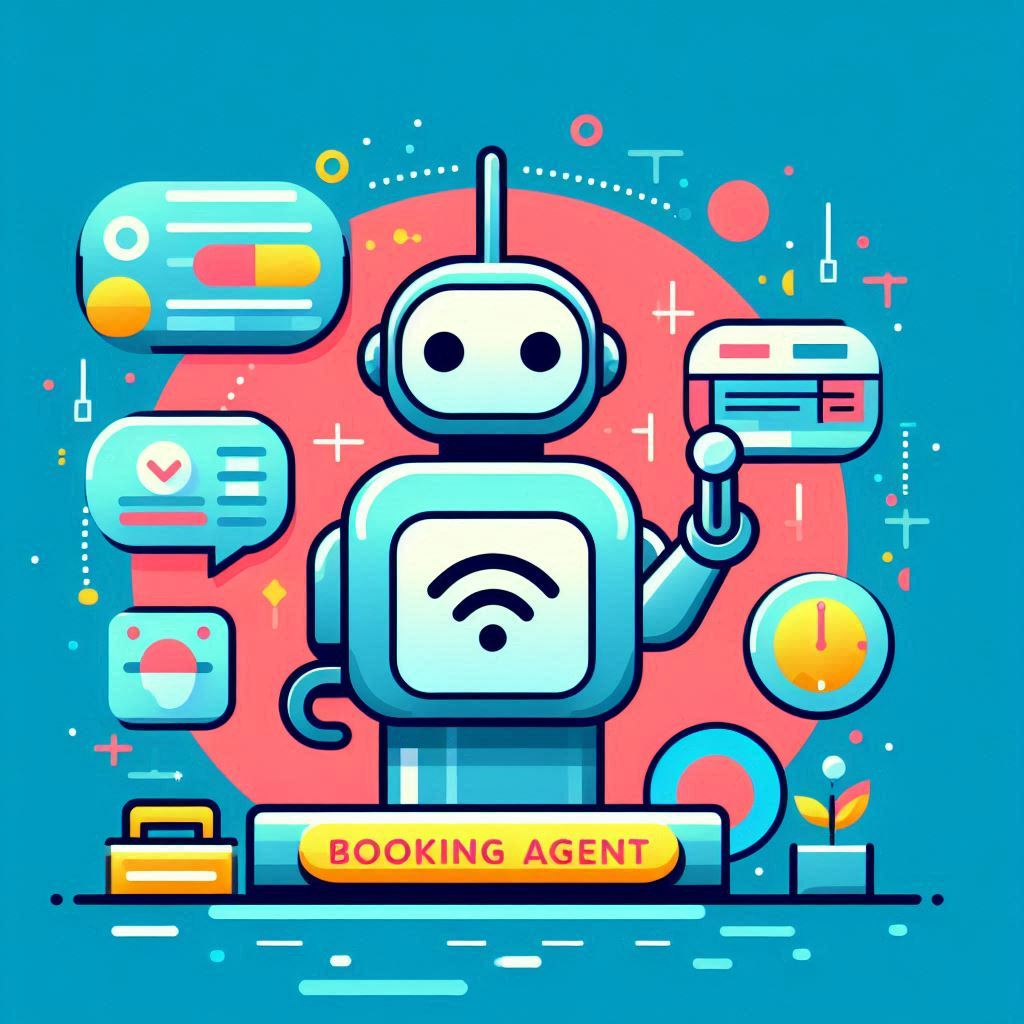
Booking.com's AI-Powered Recommendation Engine
Image Source: Booking.com: Press
Booking.com's sophisticated AI engine powers every search to give you tailored results. This travel platform has grown from a simple listing site into a smart travel companion that runs on advanced machine learning.
Personalization Algorithms Explained
The recommendation system at Booking.com combines several AI approaches to create a custom experience for each user. The website shows you destinations, images, and content based on where you are and how you browse [21]. When you log in, you'll see even more personalized content through:
- Collaborative filtering - Shows relevant content by looking at what people with similar "taste" liked and bought [9]
- Sequence-aware recommenders - Uses Recurrent Neural Networks (RNN) to suggest destinations for multi-stop trips [9]
- Reinforcement learning models - Picks the best way to arrange UI elements across different parts of the site [9]
The system chooses which photos you see first, what review snippets to highlight, and how to order room rates based on your data [21]. Booking.com has also combined OpenAI's LLMs with its own data systems to make searches better and create travel experiences that match what you want [2].
Conversion Rate Improvements
AI-powered features have made more users book trips and stay engaged longer. Travelers can now describe their perfect property in plain language with the Smart Filter tool, and GenAI automatically finds the right matches [8]. This works much better than old-style dropdown menus and helps more people complete their bookings [2].
The Property Q&A feature uses specially trained LLMs to answer specific questions about places to stay. It looks through property listings, reviews, and photos to give you accurate answers [8]. This helps travelers feel more confident about booking.
These new features have already made a big difference:
- Users spend more time exploring trips made just for them [2]
- People find the right places to stay faster [2]
- Fewer people contact customer support because they get better answers in the app [2]
- Review summaries help people book with more confidence [2]
These AI tools get smarter with every interaction as they learn from how people use them [24].
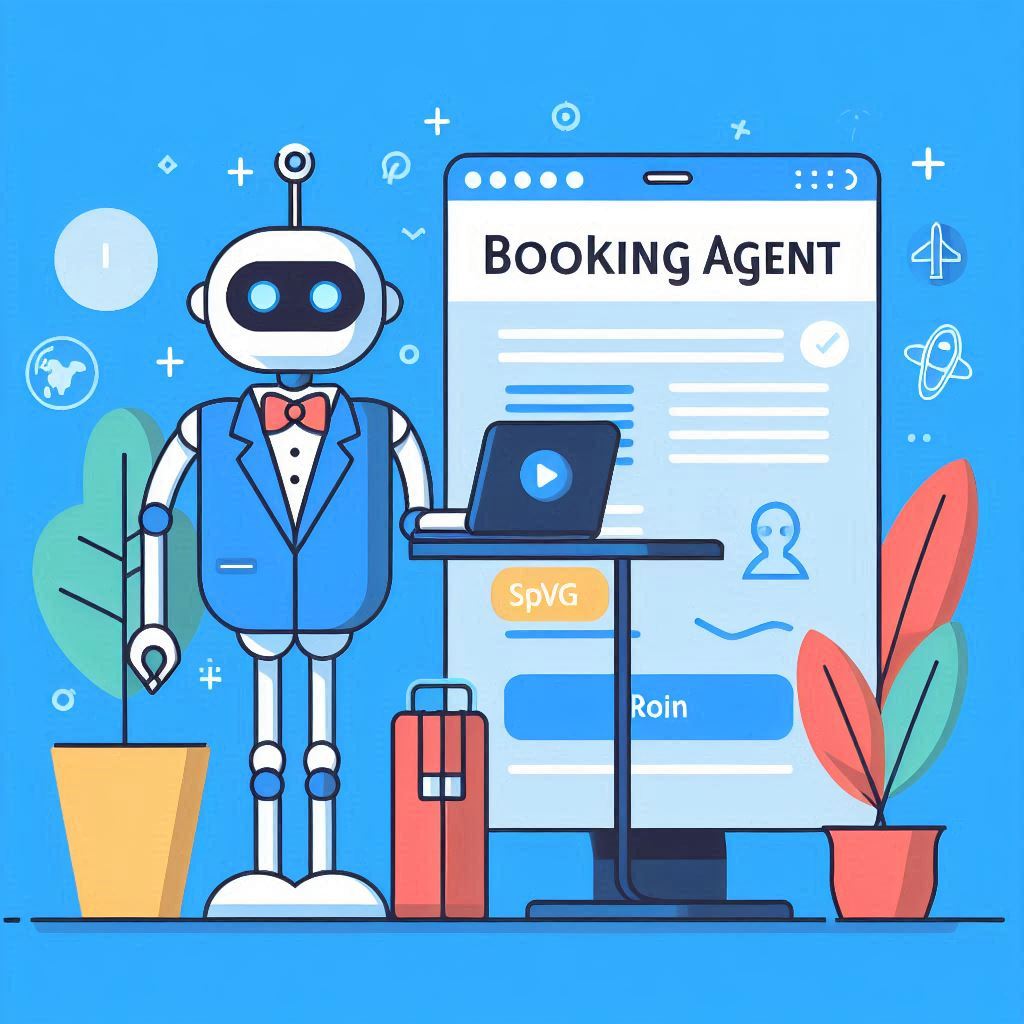
AI Agents for Independent Travel Consultants
Image Source: The Knowledge Academy
AI booking agents help independent travel consultants compete with bigger agencies. These tools automate routine tasks and let solo practitioners provide customized service while handling more clients quickly.
Solo Practitioner Success Stories
Travel Leaders 365, an Illinois-based travel agency, blended AI into their own travel-planning platform. This resulted in their advisors saving about 40% of their time [25]. A global travel agency added AI chat systems and saw their flight bookings jump by 45% [26]. Independent consultants now find AI essential to quickly process their internal files - meeting notes, old presentations, and emails. This helps them learn about client history and context better [10].
Client Satisfaction Metrics
Independent consultants who use AI booking tools see their clients' satisfaction improve substantially. One system brought response times down to 28 seconds from 90 seconds [27]. Travelers now value quick support more than ever. Many AI interactions (54.6%) happen after hours when human agents aren't working [27]. This 24/7 support makes clients happier since they get instant help with changed plans, new flight bookings, and invoice requests.
Cost-Effective Implementation Strategies
Solo practitioners can implement AI economically by:
- Using AI to automate routine admin work (booking confirmations, itinerary updates, FAQ responses)
- Setting up chatbots for round-the-clock customer support
- Using predictive analysis to spot travel trends and what clients want [28]
These approaches bring real benefits without huge costs. A global brand cut their staffing costs by 31% (about $18,000 monthly) [27]. This makes these tools available to independent consultants who have limited resources.
Learning Curve Analysis
The time needed to learn AI has dropped faster than ever. AI now helps consultants quickly master what used to take months of research [10]. Yet human expertise still matters most. Agencies get the best results from "hybrid intelligence" where AI handles data while consultants focus on making sense of it all through strategy and storytelling [10]. These days, only 4.2% of interactions need human help [27]. This lets consultants spend more time on important work that builds stronger client relationships.
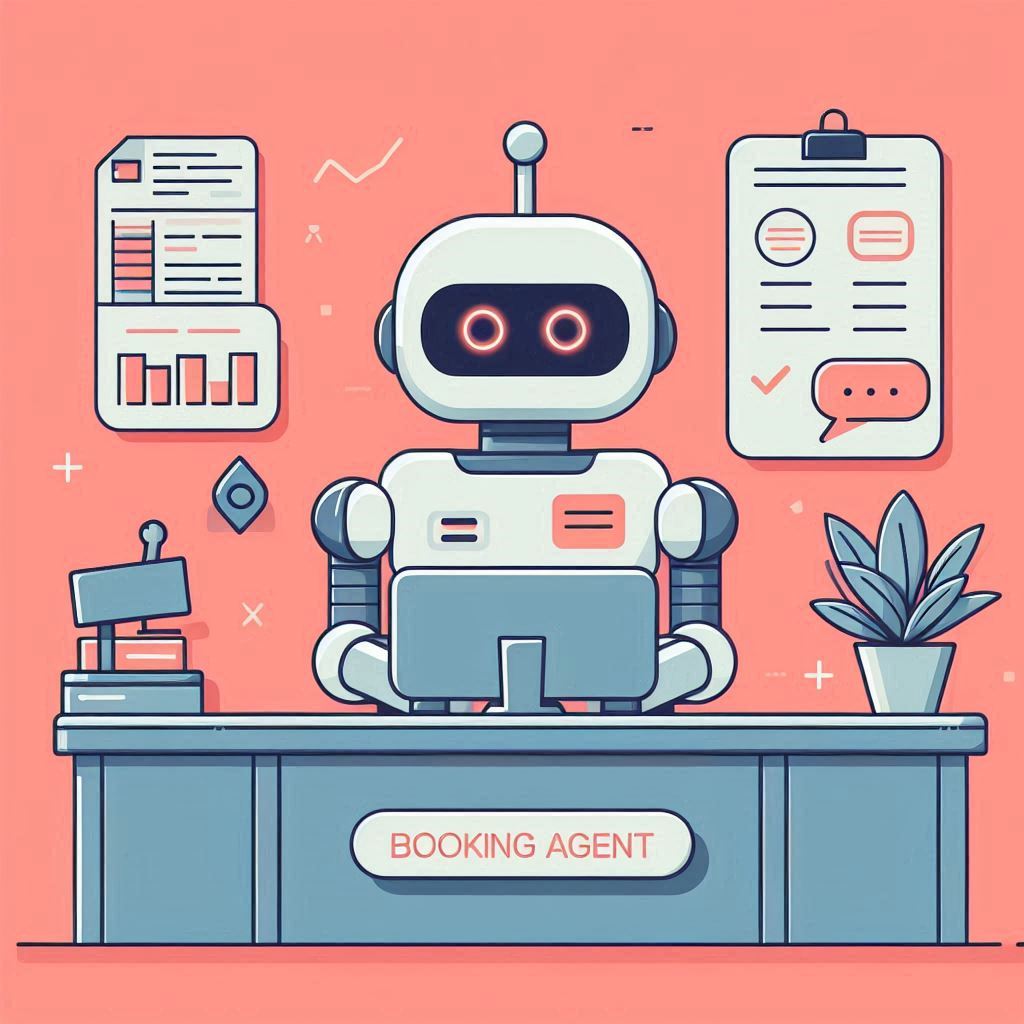
Agent.IO for Event and Conference Planning
Image Source: IBM
Event organizers face unique challenges while planning conferences and gatherings. Booking-Agent.io started with music venue bookings and now provides AI-powered solutions. Event professionals can use these solutions to simplify their planning processes.
Group Booking Capabilities
Booking-Agent.io makes group event planning easier by letting organizers map out circuit-based bookings. The platform started as a tool for music tours but now helps with conference planning. It identifies venues that have hosted similar events before [29]. This feature helps planners who coordinate multi-venue conferences or event series at different locations.
Venue Selection Features
The platform's search engine provides live data about venues and their contacts [30]. Event planners can:
- Find venues that match past events
- See venue capacities and scheduled events
- Get verified contact information for decision-makers
AI-powered venue discovery replaces manual research of potential locations. Planners can spend more time on the creative aspects of event design [1].
Time-Saving Metrics
Booking-Agent.io cuts down venue research time significantly. Booking a 25-date tour without AI help means contacting over 100 venues to check calendar availability [31]. The platform helps event professionals find suitable venues in seconds instead of hours or days. The map-based visual interface helps optimize travel routes between venues and makes planning more efficient [29].
Integration with Event Management Software
The platform works well with existing event management tools, though specific integrations may vary. Booking-Agent.io stands out from static databases by pulling fresh data about venues, programming schedules, and contact information in real time [32]. Event planners always work with current information when coordinating with other event management systems.
Pricing for Event Planners
A simple subscription costs $49.99 monthly and includes unlimited searches with 100 contacts per month [31]. Larger organizations can opt for enterprise subscription plans. The platform charges users only for accurate contacts. You won't pay if the information doesn't give results [31].
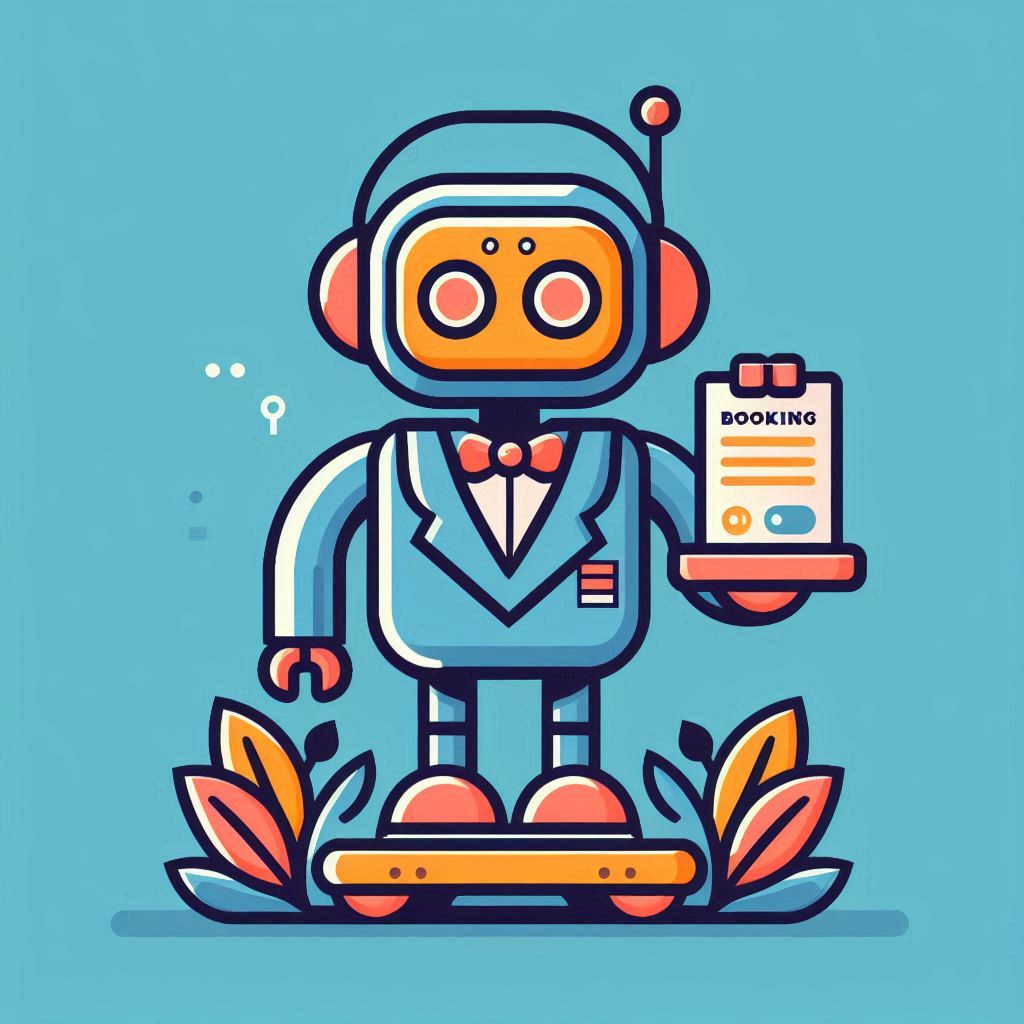
Future Trends in AI Booking Technology
Image Source: Villa Experience
“I am in the camp that is concerned about super intelligence. First the machines will do a lot of jobs for us and not be super intelligent. That should be positive if we manage it well. A few decades after that though the intelligence is strong enough to be a concern.”
— Bill Gates, Co-founder of Microsoft, philanthropist
The travel booking industry stands at the beginning of an AI revolution. McKinsey projects that generative AI will realize USD 2-4 trillion of added value across different sectors [13]. New groundbreaking developments will emerge as AI systems become more sophisticated.
Emerging Features to Watch
AI booking agents will soon go beyond basic recommendations to create truly immersive experiences:
- Hyper-personalization - Future AI systems will analyze big datasets of behaviors and priorities to create customized travel experiences without asking intrusive questions [33]
- Virtual exploration - AI-generated virtual tours will let travelers explore destinations in detail before booking [34]
- Autonomous travel solutions - Self-driving vehicles and AI-enabled drones will reshape transportation options [34]
AI travel agents will also handle problems like flight cancelations with immediate solutions automatically [8].
Predicted Industry Impact
Travel sector growth will reach approximately 6% over the next decade—doubling the overall economy's rate [13]. This growth will generate new jobs throughout the industry [13]. AI systems that handle routine questions and bookings will help reduce operational costs. One multinational hotel chain cut costs by 65% after using AI [35].
Preparing Your Travel Business for AI Integration
WTTC stresses that travel businesses need to accept new ideas about AI as a strategic priority [35]. Companies should invest in talent and encourage collaboration between humans and AI systems [35]. Early AI adoption gives businesses a competitive edge, especially since 64% of travel managers want automation support [36].
Expert Forecasts from Travel Tech Leaders
Industry experts believe frontline workers will become "superheroes powered by AI" [13]. New applications that combine virtual reality, augmented reality, and AI will improve employee training methods [13]. Travelers show strong interest in AI support for visa requirements and expense reporting, with 37% wanting help with these tasks [36].
The most successful AI implementations will keep the human connection that makes travel special while using technology to remove frustrating processes [37].

Comparison Table
| AI Booking Agent | Main Goal | Key Features | Performance Metrics | Integration Capabilities | Cost/ROI |
|---|---|---|---|---|---|
| Uber Travel's AI Assistant | Ground transportation booking | - Live flight tracking integration - Delegate booking tool - Voice & text interaction | - Accessible at 111+ airports globally - Automatic flight delay adjustments | - Blends with 30+ services - SAP Concur integration | 30% lower cost than traditional taxis |
| Luxury Virtual Travel Agent | High-end travel experiences | - Tailored experiences - 24/7 multilingual support - Live disruption management | - 90% accuracy in 50+ languages - 60% reduction in front-desk workload | Integration with property management systems | 31% reduction in staffing costs |
| AI Flight Booking Agents | Flight booking & price optimization | - Price prediction algorithms - Automated rebooking - Policy enforcement | - $146 cheaper flights (Google Gemini) - 60% support request resolution | Varies by platform | Not mentioned |
| Booking.com AI Engine | Accommodation recommendations | - Smart Filter tool - Property Q&A - Review summarization - Shared filtering | - Higher engagement rates - Fewer customer support contacts | OpenAI LLM integration | Not mentioned |
| Independent Travel Consultant AI | Travel agency automation | - 24/7 customer support - Administrative task automation - Client history analysis | - 40% time savings for advisors - 45% increase in bookings - 28-second response time | Integration with existing agency tools | 31% reduction in staffing costs |
| Agent.IO | Event & conference planning | - Circuit-based bookings - Live venue search - Contact verification | Reduces 100+ venue contacts to seconds | Compatible with event management software | $49.99/month simple subscription |
| Understanding AI Booking (General) | Core AI booking functionality | - Natural Language Processing - Machine Learning - Predictive Analytics | 30% reduction in service costs | Multiple backend systems | Not mentioned |
| Future AI Booking (Predicted) | Next-gen travel solutions | - Tailored experiences - Virtual exploration - Autonomous travel | Projected 6% industry growth | Cross-platform integration predicted | $2-4 trillion potential value |
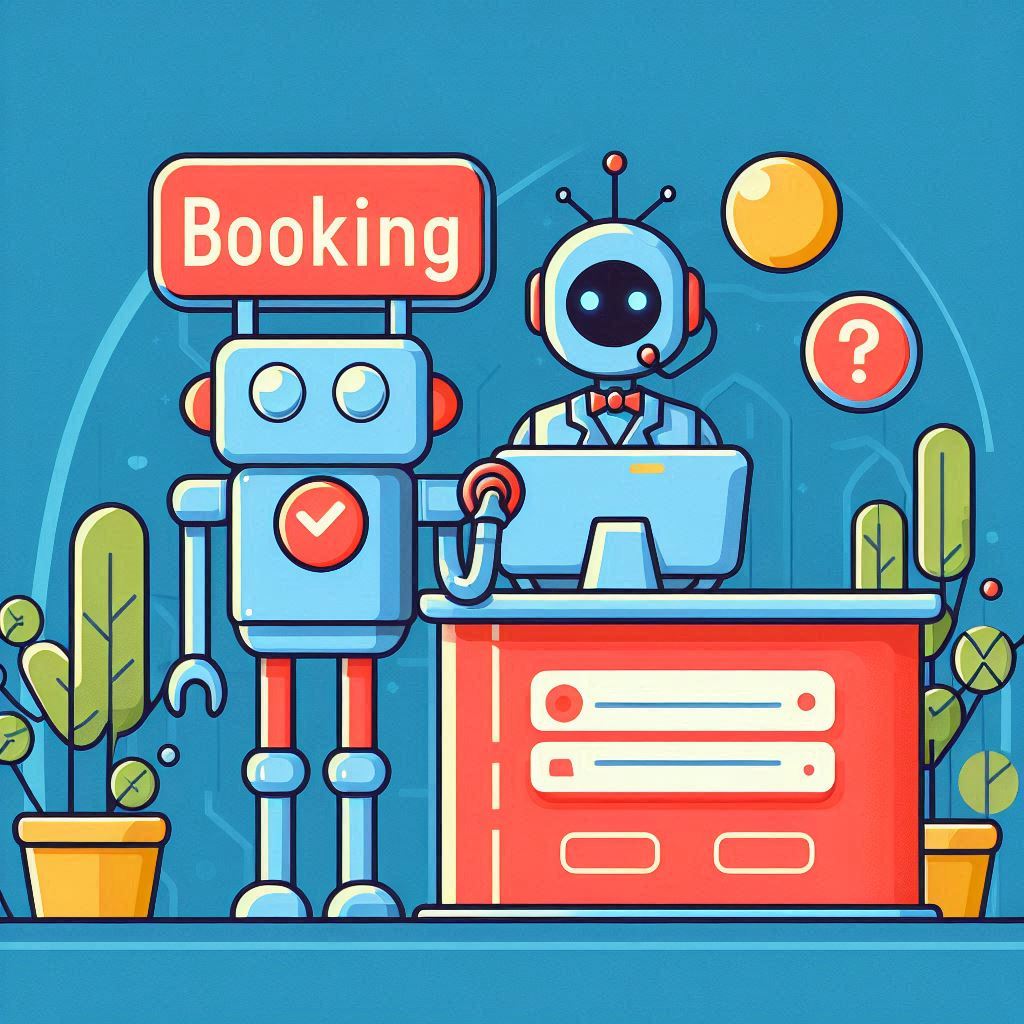
Conclusion
AI booking agents have shown amazing results in travel sectors of all sizes. They deliver solid wins through automation, individual-specific experiences, and live adaptability. These smart tools now take care of everything from luxury travel to ground transportation. The numbers are impressive - 30% lower costs and 45% more bookings.
The results tell a clear story. AI agents cut down on time waste and operational costs while boosting customer happiness. Uber runs a flight-aware ground transport system at more than 111 airports worldwide. Booking.com's AI engine uses smart algorithms to suggest perfect matches for travelers. Small travel consultants save 40% of their time and can focus on what matters most - talking to their clients.
AI technology keeps getting better fast. The machine learning systems learn from every conversation. Prediction tools become sharper and natural language makes these solutions available to everyone. Human expertise still matters though. AI works best as a powerful helper rather than a replacement for travel pros.
The future looks bright for AI booking agents as they move toward virtual exploration and self-driving travel options. McKinsey thinks these technologies could add $2-4 trillion in value to industries of all types. The best systems will keep the human touch while getting rid of tedious manual work.
AI booking agents create real value today and promise even more tomorrow. Your success depends on picking the right tool for your needs and knowing how to combine it smoothly with your current work setup.
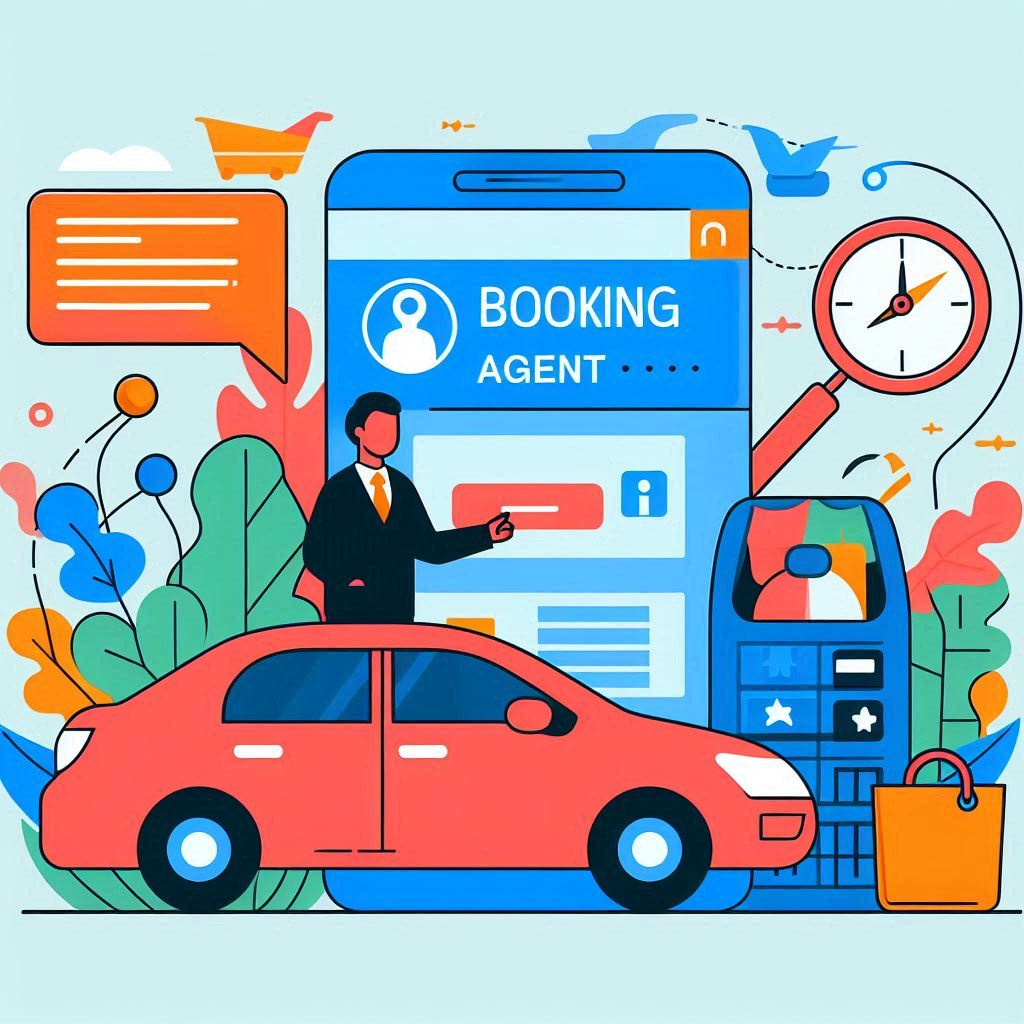
FAQs
Q1. Are AI travel agents reliable for booking trips?
AI travel agents can be helpful for comparing prices, finding nearby amenities, and providing quick recommendations based on your preferences. While they excel at certain tasks, they may not fully replace human travel agents for complex itineraries or personalized service.
Q2. How do AI booking agents compare to traditional booking systems?
AI booking agents offer more personalized experiences by analyzing user data and preferences. They can handle complex multi-leg journeys, provide 24/7 support, and often reduce operational costs for businesses. Traditional systems typically follow rigid frameworks and require more human intervention.
Q3. What are the key features of top AI booking agents?
Leading AI booking agents offer real-time flight tracking, personalized recommendations, automated rebooking for disruptions, and integration with multiple services. They often include natural language processing for easy communication and machine learning algorithms for continuous improvement.
Q4. How do AI booking agents benefit luxury travel experiences?
AI booking agents for luxury travel can create hyper-personalized itineraries, offer 24/7 multilingual concierge-level service, and manage last-minute requests efficiently. They excel at analyzing vast amounts of data to curate bespoke experiences that rival human concierge services.
Q5. What future trends can we expect in AI booking technology?
Future AI booking agents are likely to offer more immersive experiences, such as AI-generated virtual tours of destinations. We can also expect increased hyper-personalization, integration with autonomous travel solutions, and more sophisticated handling of travel disruptions in real-time.
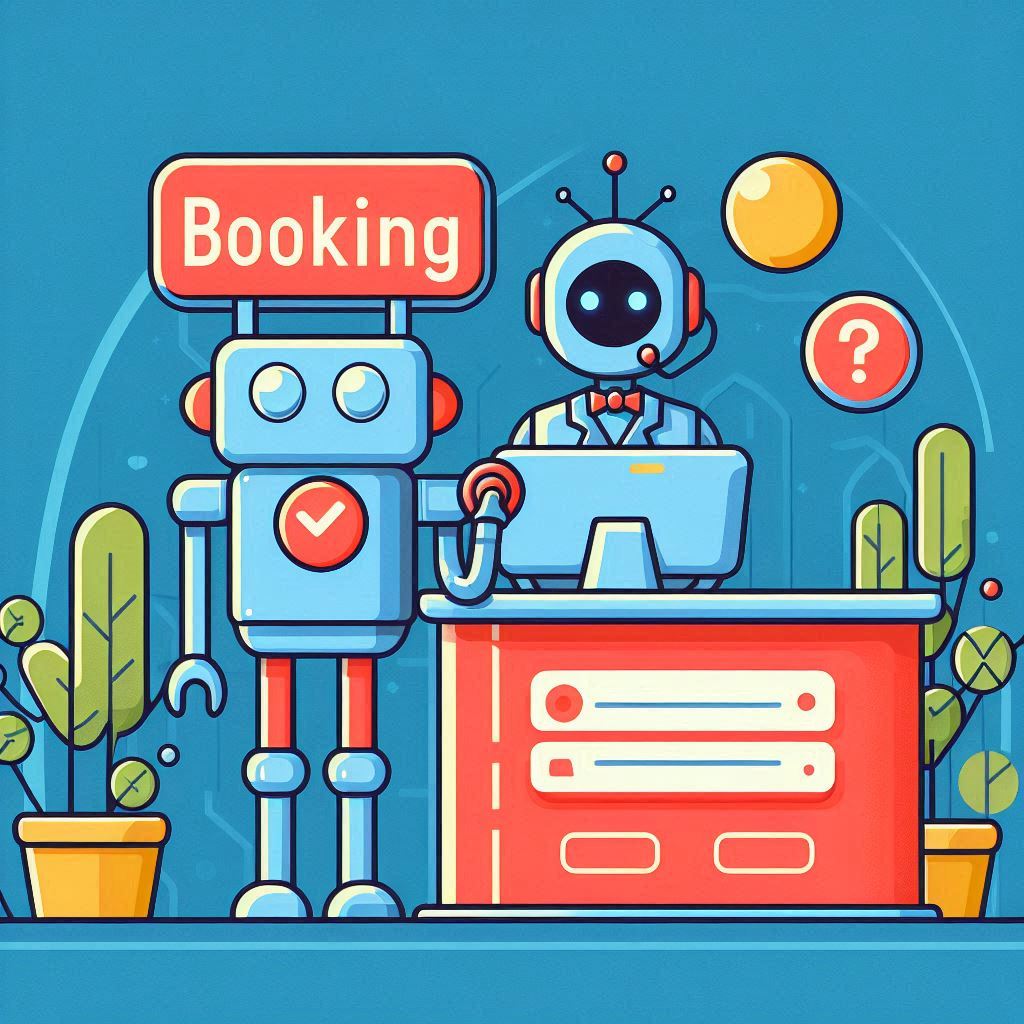
References
[1] - https://meetings.skift.com/2024/06/25/ai-powered-venue-booking-is-here/
[2] - https://openai.com/index/booking-com/
[3] - https://www.travelai.com/resources/ai-booking-agents-secure-travel-reservations/
[4] - https://asksuite.com/blog/ai-in-luxury-hotels-and-resorts/
[5] - https://navan.com/blog/insights-trends/ai-travel-agent
[6] - https://supafunnel.com/voice-ai-case-studies/voice-ai-for-hospitality
[7] - https://www.usatoday.com/story/travel/2024/07/02/can-ai-find-cheap-flights/74247447007/
[8] - https://news.booking.com/bookingcom-enhances-travel-planning-with-new-ai-powered-features--for-easier-smarter-decisions/
[9] - https://medium.com/booking-product/personalization-using-machine-learning-from-data-science-to-user-experience-3b1ef5d23ced
[10] - https://orpical.com/ai-driven-knowledge-agency-learning-curve/
[11] - https://www.mightytravels.com/2025/01/how-ai-automation-transformed-this-travel-agency-a-6-month-analysis-of-productivity-and-customer-satisfaction-rates/
[12] - https://aquent.com/blog/how-ai-and-tech-are-shaping-luxury-travel-experiences
[13] - https://www.mckinsey.com/industries/travel/our-insights/what-ai-means-for-travel-now-and-in-the-future
[14] - https://insights.ehotelier.com/insights/2024/12/17/how-ai-helped-improve-the-guest-experience-and-increase-revenue-case-study/
[15] - https://kodytechnolab.com/blog/ai-in-travel/
[16] - https://aiixx.ai/blog/8-best-ai-travel-agents
[17] - https://www.fetcherr.io/blog/dynamic-pricing-in-aviation
[18] - https://www.cognigy.com/solutions/airlines-travel
[19] - https://www.microsoft.com/en/customers/story/19768-air-india-azure-open-ai-service
[20] - https://emerj.com/chatbots-travel-tourism-comparing-5-current-applications/
[21] - https://verdict-ai.nridigital.com/verdict_ai_aug18/the_bespoke_customer_experience_how_booking_com_is_using_ai_to_make_travel_personal
[22] - https://skift.com/2025/03/25/booking-com-and-ai-now-vs-2023-tech-chief-explains-whats-changed-whats-next/
[23] - https://www.cnet.com/tech/services-and-software/how-to-use-the-ai-trip-planner-on-booking-com/
[24] - https://www.travelaihub.com/booking-ai-review/
[25] - https://www.travelweekly.com/Travel-News/Travel-Agent-Issues/Illinois-travel-agency-uses-AI-to-save-time
[26] - https://botpress.com/blog/ai-travel-agent
[27] - https://riskline.com/february-travel-outlook-ai-powered-travel-consultants/
[28] - https://wanderlust-social.com/ai-in-the-travel-industry-why-human-travel-advisors-are-here-to-stay/
[29] - https://booking-agent.io/
[30] - https://booking-agent.io/pricing/
[31] - https://www.billboard.com/pro/ai-powered-booking-agent-io-venue-directory-business/
[32] - https://medium.com/platform-stream/booking-agent-io-delivers-indie-artists-the-tools-platform-to-enhance-venue-research-show-booking-5c24523f8b0c
[33] - https://mize.tech/blog/6-examples-of-how-ai-is-used-in-the-travel-industry/
[34] - https://www.charterglobal.com/generative-ai-travel-hospitality-benefits-challenges-trends/
[35] - https://wttc.org/news-article/ai-set-to-shape-the-future-of-travel-and-tourism-says-wttc
[36] - https://insights.discoverglobalnetwork.com/insights/ai-in-travel-industry-what-merchants-need-to-know
[37] - https://www.forbes.com/sites/rogersands/2023/11/01/how-will-artificial-intelligence-impact-the-travel-industry/